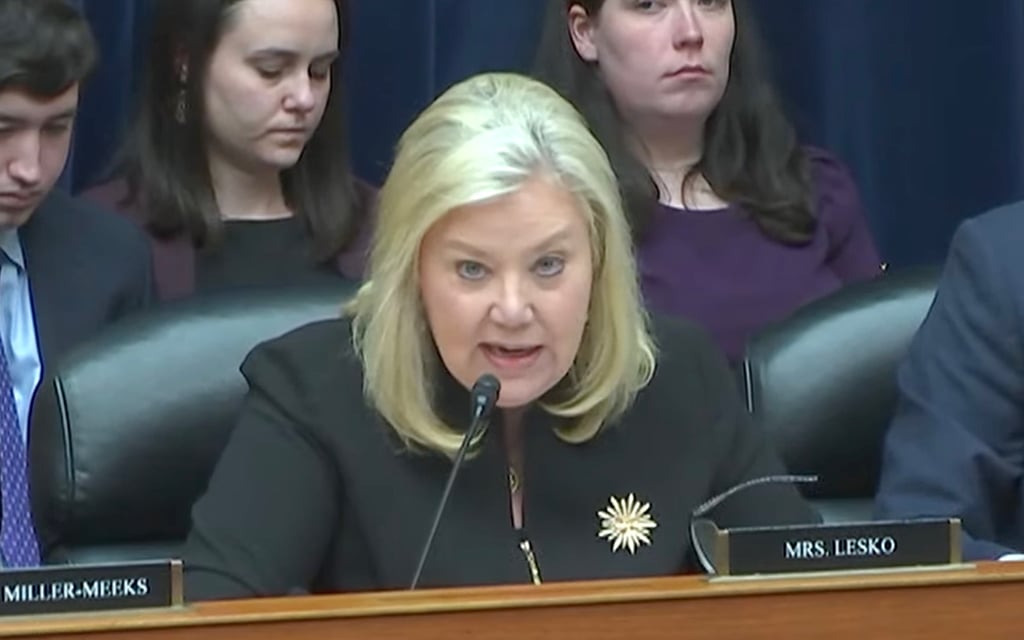WASHINGTON – Dr. Anthony Fauci faced tough questions from Republicans at a House hearing Monday on the origins of COVID-19 and the federal public health response.
GOP lawmakers have tried without success to show wrongdoing by Fauci, who led the U.S. response to the COVID-19 pandemic under former President Donald Trump. Many pressed him to agree that the “lab-leak theory” – that COVID-19 did not evolve naturally – is no conspiracy theory.
He did so, though that didn’t deflate all of the hostility leveled against him during the 3½-hour hearing of the House Select Subcommittee on the Coronavirus Pandemic.
“I don’t think the concept of there being a lab leak is inherently a conspiracy theory,” Fauci testified.
That echoed closed-door testimony he gave to committee aides in January, and which the panel released Friday ahead of the hearing. Still, Fauci made clear he believes the virus did evolve naturally.
Rep. Debbie Lesko, R-Peoria, questioned Fauci about National Institutes of Health funding for the Wuhan Institute of Virology, which specializes in coronaviruses found in bats. The initial outbreak was at a market nearby.
Lesko asked about “potentially dangerous, enhanced-potential, pandemic pathogens gain of function research” at the lab. Numerous Republicans asked some version of the same question. Fauci’s answers remained consistent and, to his interrogators, largely unsatisfactory.
The Wuhan lab did conduct research on emerging infections through an NIH grant, he said. But he said, the viruses it studied could not have evolved or been fashioned into SARS-CoV-2 – the culprit behind the COVID-19 pandemic – because those viruses were “phylogenetically so far removed from SARS-CoV-2 that it is molecularly impossible.”
Conservatives have latched onto the theory that “gain of function” research aimed at making a virus more virulent caused the outbreak. Fauci has called “gain of function” a “nebulous” term in past congressional testimony.
On Monday, he said the Wuhan lab did not perform “gain of function” research as the Department of Health and Human Services uses the term. Republicans have rejected that defense as an exercise in semantics.
Fauci stepped down in 2022 as director of the National Institute of Allergy and Infectious Diseases, a post he held for 38 years.
“In the field of virus research, one of the things that researchers sometimes want to know is if a virus were to gain an ability that it doesn’t currently have, would it be a threat and what kind of threat would it be?” Joshua LaBaer, executive director for Arizona State University’s Biodesign Institute, said by phone after the hearing.
“It’s giving it a tool that it doesn’t currently have,” LaBaer said. “As you can imagine, that kind of research is very, very tricky and requires a lot of approval before anyone would use it.”
Lesko and other subcommittee Republicans also alleged that Fauci worked to quash the idea that the virus may have originated in a lab funded by the U.S. government. He denied the allegation, as do other top virologists.
“It’s the most unfair thing I have seen,” Rep. Kweisi Mfume, D-Md., said during the hearing. “If there were evidence, if there were facts that supported the charges I, like everybody else, would be interested. But we haven’t seen a damn thing to suggest that these accusations are accurate.”
Republicans confronted Fauci at the hearing with emails between Dr. David Morens, a former senior advisor to Fauci, and Dr. Peter Daszak, president of EcoHealth Alliance, which worked with the Wuhan lab. Fauci is referenced multiple times in emails released by the subcommittee on May 22.
One email from Morens refers to the deletion of emails relevant to an open records request.
Fauci said he wasn’t aware of those messages and had no role “whatsoever” in skirting federal Freedom of Information Act law. He called Morens’ actions an “outlier.”
HHS notified EcoHealth Alliance in May that the environmental health nonprofit would be suspended from receiving further federal grants.
Democrats on the House panel accused Republicans of staging a witch hunt for political purposes.
Rather than promoting vaccine research, for instance, the committee “instead has wasted significant time and taxpayer money fueling conspiracy theories and ignoring the importance of preparing for the next deadly pandemic,” said Rep. Kathy Castor, D-Fla.
Chuck Coughlin, CEO and president of HighGround Public Affairs Consultants, said most voters are uninterested in litigating the cause of and response to the pandemic.
“Most of the country has moved on and would like to move on and believe that we have other significant problems that the country is faced with right now.”


